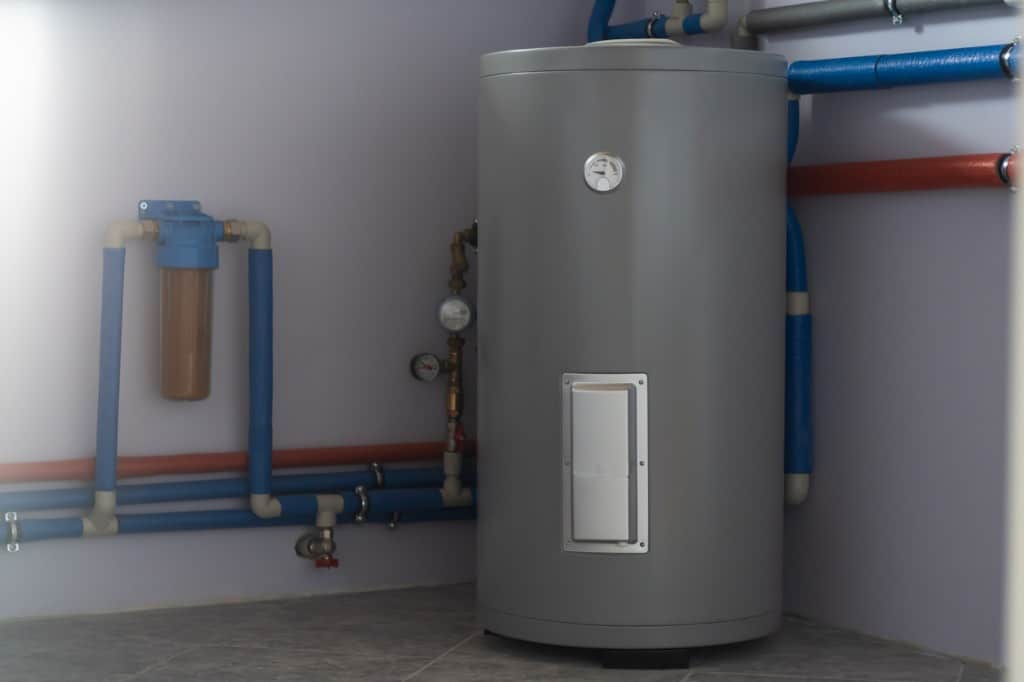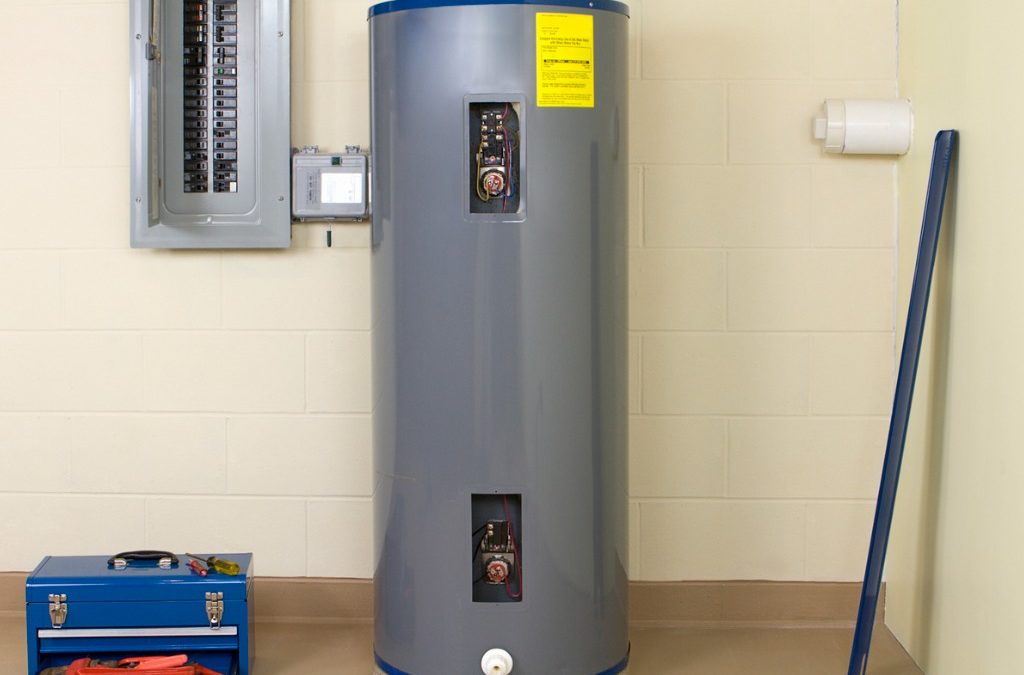For many business owners, a water heater and a boiler might appear to serve the same purpose. Although there is some overlap in the functions of these two appliances, boilers and water heaters serve different functions within a commercial building and heat water in different ways.
Your business has many different components that work together to keep it running well, which makes it easy to become confused when you hear terminology that sounds similar, and the same can be said when it comes to boiler and water heater systems. In this article, we’ll go over the various distinctions between these two appliances in further detail, including what they are and how they work so you can make the best decision for your business.
If you’re a business owner looking for professional HVAC services to improve your commercial building, contact Design Mechanical today for a free consultation to learn more about how we can assist you.
What Is a Water Heater, and How Does it Work?
The water heater is an appliance that lives up to its name and does precisely what it claims to do: it heats water. Water heaters are designed to provide hot water to the entire building. When you turn on a faucet, the water heater sends hot water down the pipes to your faucet, where you can use it as needed.
While there are many different types of water heaters that heat and circulate water in slightly different ways, they all serve the same primary function. Depending on the type of water heating system you have, they either keep a tank of hot water ready, or heated water is provided on demand when you turn on a hot water faucet.
Most Common Types of Water Heaters
Historically, the majority of water heaters used natural gas to heat a large tank of water that could be drawn from whenever hot water was needed. However, with advancements in technology, water heaters have many more possibilities, with some even operating without water tanks and using various fuel sources.
Here’s a quick look at some of the most common types of water heaters that are used in commercial buildings today.
Fuel Source
To transmit hot water through your system, the water heater must generate enough heat to warm the water to an adequate degree. This necessitates a continuous fuel source. Today, water heaters are powered by one of two primary fuel sources: gas or electricity.
Gas
For many years, natural gas water heaters were the only viable alternative. Because gas-powered water heaters are often more efficient, they are less expensive to operate than electric water heaters, but they are frequently more costly in the beginning.
Electric
Due to their renewable properties, many modern water heaters are powered by electricity rather than natural gas. Electric water heaters don’t require flames or pilot lights, unlike gas water heaters, and they simply connect into an electrical outlet and begin heating your building’s water.
Tank / Tankless
Until recently, nearly all water heaters used tanks to store water and ranged from 10 to 60+ gallon-sized tanks. The tank would be filled with water, which it would then heat to the desired temperature. As the water reached the desired temperature, it remained in the tank, constantly being heated to maintain the temperature until it was sent to a faucet when needed.
Nowadays, tanks have been eliminated to make the process more efficient.
Tankless water heaters don’t have any water storage tanks, only heat water as needed. When you turn on the faucet, the water heater heats the water as it is sent to the faucet, providing an infinite supply of hot water.
What Is a Boiler, and How Does it Work?
A boiler heats water in the same way that a water heater does, but there is one significant difference.
Boilers use a large tank that uses a fuel source to generate heat via fire or hot gases. A network of pipes goes through the boiler tank, where the generated heat warms the water inside the pipes. From there, a network of pipes routes the hot water or steam throughout the building, where it is circulated to radiators and radiant floor heating systems. The water then cycles back to the boiler, where it is heated again, and the process is repeated.
Most Common Types of Boilers
There are several types of boiler systems that are extensively used for commercial purposes. Although we won’t go over all of the many types of boilers, we will go over the primary types that you might find in most commercial buildings.
 Gas
Gas
Natural gas is commonly used to power gas boilers and uses gas to heat the boiler using a pilot light or electronic ignition. Gas boilers are more expensive up front, but they are more efficient and cost less to operate in the long run.
Electric
Electric boilers heat the water pipes with electricity and heating elements rather than an open flame or hot gases. Electric boilers are an excellent alternative if you don’t have natural gas or don’t want to use it. However, electric boilers are less efficient compared to gas-powered boilers.
Steam
Steam boilers heat water to the point where it is only steam. Steam boilers are less efficient than water boilers because it takes more energy to boil water into steam than to merely heat it.
Standard / Combination Boilers
Standard boilers are designed to heat a business via radiators and radiant floor heating. They accomplish this by circulating hot water or steam through the pipes, allowing heat to radiate throughout the building. On the other hand, combination boilers go even further and will also heat the water that comes out of your faucets.
Contact Design Mechanical Today for Your Commercial HVAC Needs
As you can see, there are as many similarities as there are differences between boilers and water heaters. However, despite the commonalities, the two appliances differ in a few critical ways. Deciding which one is right for your business will ultimately come down to the specific needs of your business.
If you need assistance in determining which commercial HVAC system is best for your business, Design Mechanical is ready to help. We’re committed to providing our Kansas City customers with quick and dependable HVAC services for their commercial business. Contact us today for a free consultation to learn more about how we can assist you.

